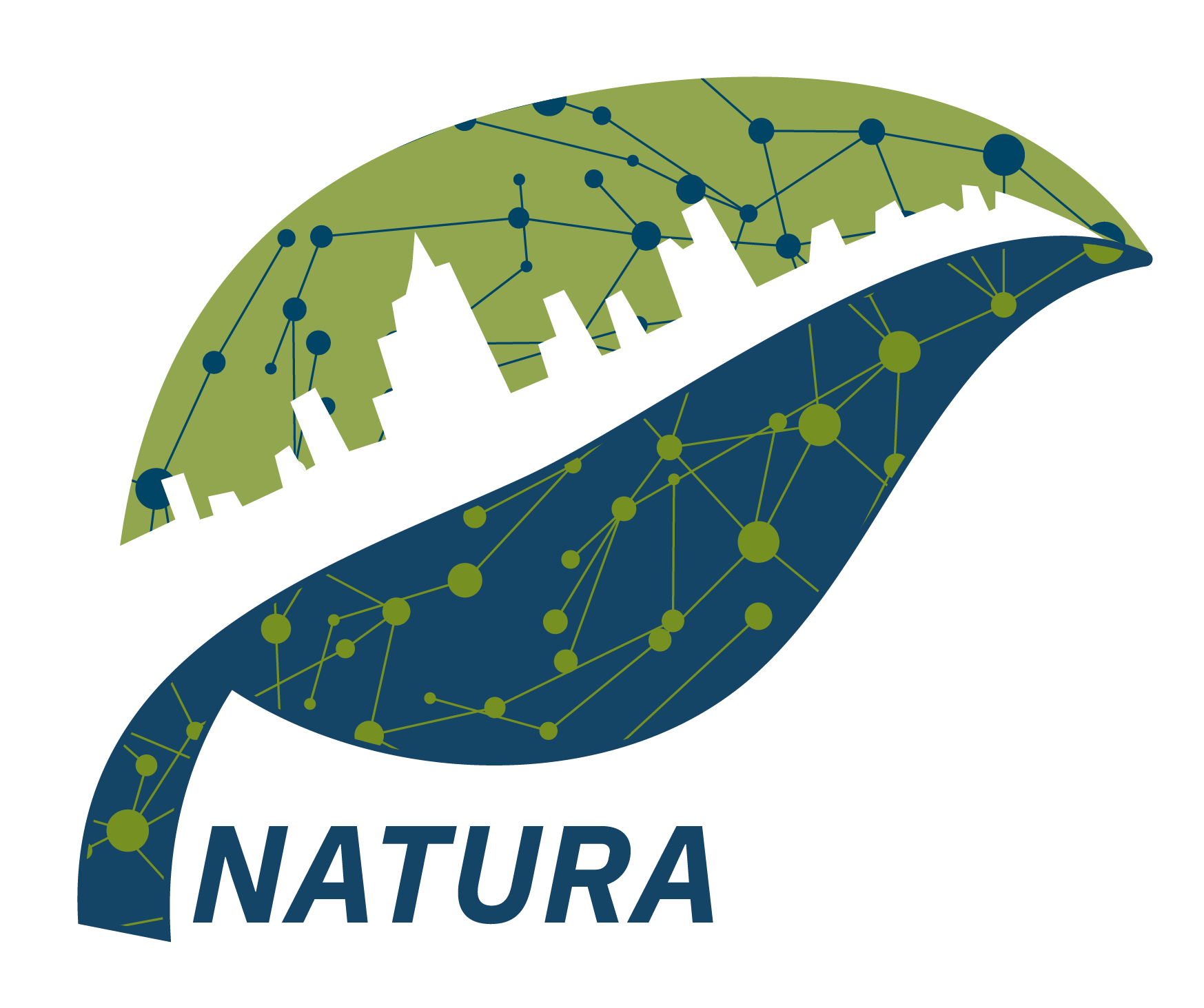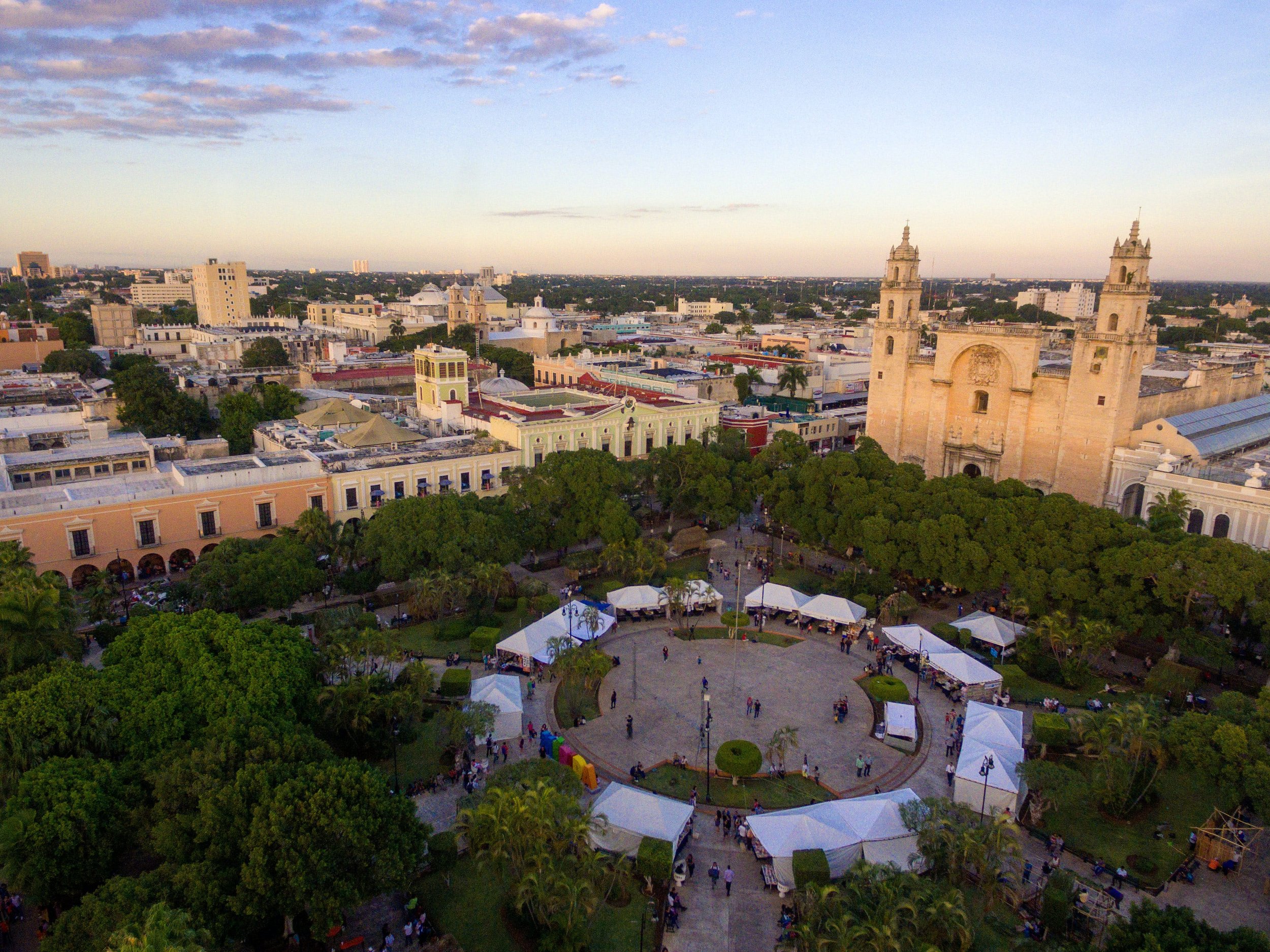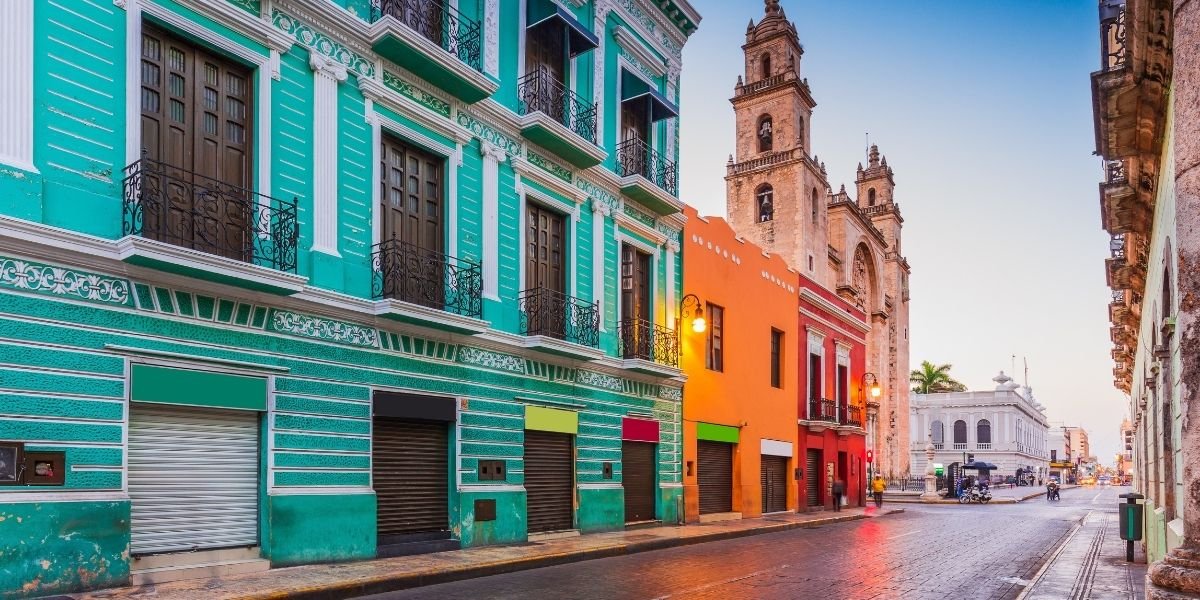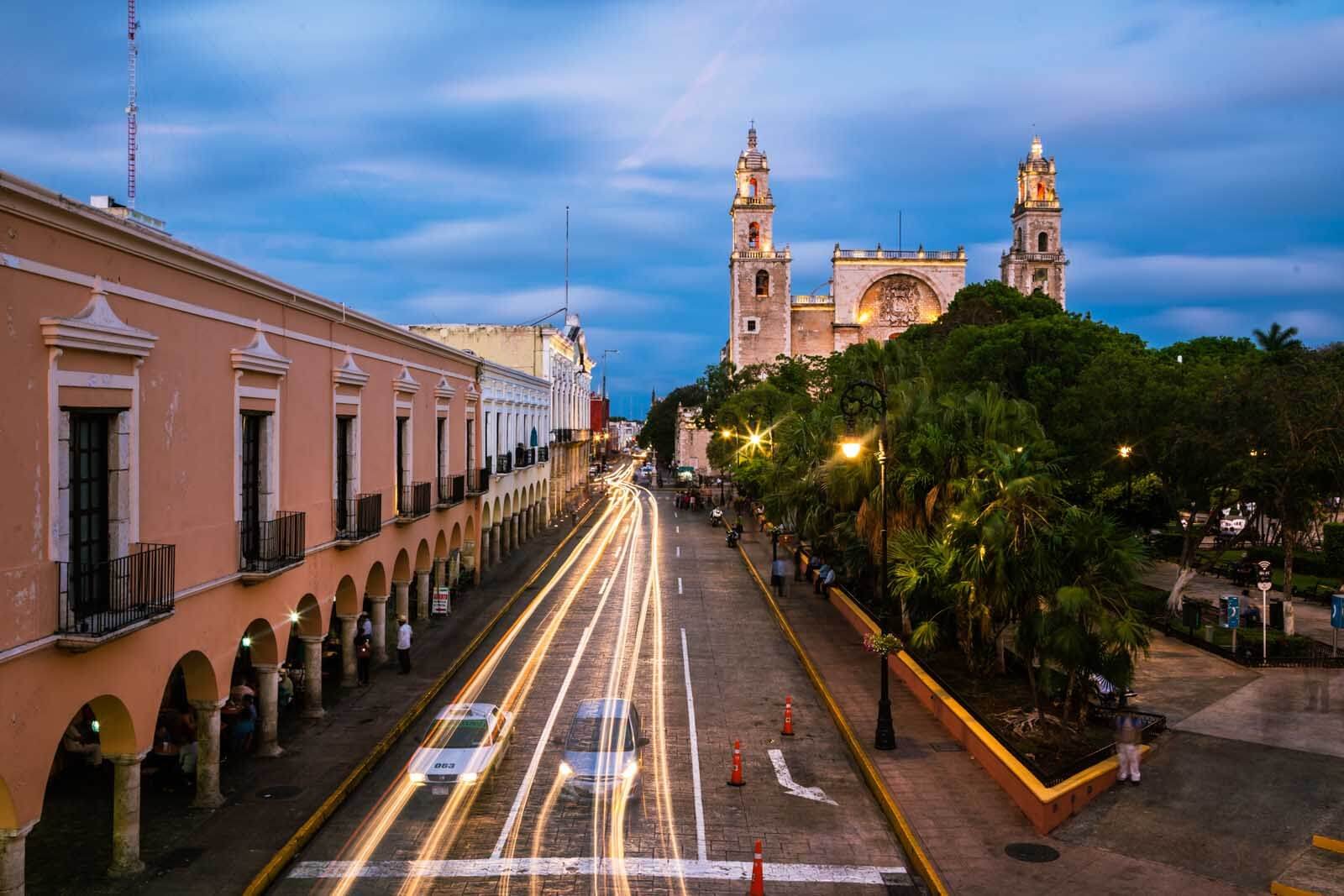The Resilient Urban Latin America International Research Experience for Students
INFORMATIONAL WEBINAR
In this webinar, we heard from the 2024 RULA-IRES project Mérida mentors, learned about the projects that will be available to those selected for the opportunity, listened to testimonials from former students from previous years, and went over details on how to apply. If you are interested in applying, please view this webinar!
About the Program
The Resilient Urban Latin America (RULA) International Research Experience for Students (IRES) project offers undergraduate and graduate students the opportunity to conduct eight to ten weeks of onsite research in a Latin American or Caribbean urban community facing climate extremes. This research will afford students collaboration and mentorship experiences for conducting research, gaining skills in research design, data analysis and management, and presentation across diverse social and political cultures; project outcomes for graduate fellows can be integrated into existing or proposed graduate research. Student participants will also have opportunities to network with members of NATURA through reading group, blogs, webinars, and social media.
The NATURA IRES experience will provide an opportunity for students to advance themselves as effective change agents for Anthropocene within the context of climate change and urbanization. Consider some of the previous students’ testimonials below:
2018 Valdivia, Chile graduate and postdoc presentation (link)
2019 Hermosillo, Mexico testimonials (link)
2021 San Juan, Puerto Rico group testimonial and link to visual essay (link)
2022 Guayaquil, Ecuador group testimonial (English) (Spanish)
Eligibility: Graduate and undergraduate students who are US citizens or permanent residents in good academic standing, with research interests in line with the above emphases, are welcome to apply. Preference will be given to students with some knowledge of the Spanish language. For graduate students, the quality of the research statement, its relevance to the nature-based solutions research in the host city (see themes), and its potential intersection with the student’s thesis or dissertation research are key criteria; for undergraduate students, relevance of the student’s major or area of interest to the themes presented above, the GPA, and the quality of the statement are key. Student selection will follow a brief interview of semi-finalists and is expected to be completed by early 2024. All selected students must commit to the full period of the fellowship and to a one-credit, half-semester preparatory course in Spring 2024 (March - April), which will be offered online by ASU and will involve 2 h per week of class time plus moderate independent reading and reflection.
What is covered: Airfare or other transportation to and from the host city, housing, and board will be covered for the duration of the fellowship. Each fellow will receive a stipend of $500 per week, plus an additional $1,000 toward research expenses.
Thematic research areas
The RULA IRES project is funded by the National Science Foundation and led by Nancy Grimm (Arizona State University), Marta Berbés-Blázquez (University of Waterloo, Canada), Elizabeth Cook (Barnard College, NY), and Matt Feagan (University of Waterloo, Canada). This collaborative research is supported by the NATURA Network (Nature-based solutions for Urban Resilience in the Anthropocene) and the Universidad Nacional Autonoma de Mexico in Merida (UNAM). Student researchers will work collaboratively with Drs. Bertha Hernández Aguilar and Hallie Eakin. The IRES NATURA experience will provide an opportunity for students to become effective change agents for the Anthropocene within the context of climate change and urbanization.
Context
Merida, Yucatan is a city located in the southeast of Mexico, in the region of Peninsula de Yucatan. It is the capital of the state of Yucatan with 995 129 inhabitants (INEGI, 2020), of which 52% is female and 48% is male. The climate conditions are warm and humid, with rainfall in summer and the highest temperature are from April and August exceeding 40°C (104 °F). The main language is Spanish however, in some rural areas of the state the Mayan language is still spoken.
In Merida the urbanization process is growing in the metropolitan area, as in other global south cities, the urbanization has characteristics as a disorderly, fragmented and informal urbanization. According to the government of Merida, one of the main causes of population growth these days has been migration for family, housing and economic reasons. Merida is recognized as the safest place in Mexico compared with other states of the country. In 2022 Merida was named to fourth place in the category of Great Cities by Condé Nast Traveler, an international publication about tourism due cultural, social and natural attractions characteristics. However, the city of Merida has many socio ecological problems related with this urban growth and the management of resources.
Main Topics/ Activities
Management of urban solid waste as a socio-environmental problem. Sanitary landfills are the most widely used method for solid waste disposal in Mexican cities. This approach consists of depositing these materials on the ground, covering them with a layer of land and compacting the material. However, there are many challenges with this kind of waste disposal, for example, the emissions produced in fires or chemical substances generated can cause damage to aquifers and the environment, even the health of communities around this area. Additionally, irregularities in landfill management can create future risks for society and the environment. In 2023, there were two major fires at the main landfill in the city of Merida on January 16 and February 22, causing concern in the surrounding communities. We invite participants to prepare a proposal about this social ecological problem using a transdisciplinary framework. Some ideas to review/learn more about the problem:
Solid waste management in cities
NBS for solid waste disposal
Legal structures in Yucatan regarding solid waste management
Videos related to nexus water quality & waste disposal
Urban informality and urban equity: alternatives to access to basic needs in informal settlements. In the global south, rapid urbanization occurs under an informal growth, taking place outside of formal city planning and zoning, thus these areas are often living under lack of basic services such as water and sewage systems. International agreements such as Sustainable Development Goals (SDS) or New urban Agenda establish water as a human right and to reduce the poverty in cities as a priority. So, city governments need to find solutions about the inequality and vulnerability that still persist in informal settlements and reduce it. We invite participants to write a proposal for a Nature Based Solutions about water scarcity in informal urban areas and the challenges to implement it in the city of Merida in order to transform informality into a more legitimate and social just form of urban growth for all citizens. Some ideas to review/learn more about the problem:
Vulnerability of urban informal settlements
Water management in cities & peri urban areas
NBS to water scarcity
Law in Yucatan regarding water management
Vulnerability & risk of flooding in informal settlements. The Yucatan Peninsula, due to its geographic location, is susceptible to the impact of extreme weather events, temperature extreme climatic phenomena, to the increase of temperature, and therefore, to imbalances in the ecosystems and local ecosystems and local productive systems. In the state of Yucatan, the city of Merida is affected by flooding that impacts the whole city. These impacts are exacerbated in the center and the south of the city for informal settlements and due the lack of infrastructure affect the runoff of water in the rainy season. Additionally, the karst composition of the soil of Merida affects infiltration of water making more vulnerable the population, especially population living in marginalized conditions. We invite participants to write a proposal for a Natural Base Solutions to reduce flooding in informal urban areas and the challenges to implement it in the city of Merida. Some ideas to review/learn more about the problem:
Vulnerability of urban informal settlements
NBS to reduce flooding in cities
Nexus flooding and waste disposal in cities
Green infrastructure on urban flooding reduction
Contact and information
Further information about how to apply to this opportunity contact Tessa Martinez, Project Manager (tmmart12@asu.edu). For information about NATURA or the IRES project, contact Nancy Grimm (nbgrimm@asu.edu) or Marta Berbés-Blázquez (marta.berbes@uwaterloo.ca).
RULA IRES Project Timeline
Valdivia, Chile (2018)
Hermosillo, México (2019)
San Juan, Puerto Rico (2021)
Guayaquil, Ecuador (2022)
Bogotá, Colombia (2023)
Mérida, Mexico (2024)
➔ Application deadline November 22, 2023
Applicant Instructions
Graduate Application – Mérida (English PDF, English DOC.x) (Español pdf, Español doc.x)
Graduate candidates must complete and submit…
The application form
A short (1000 words or less) personal statement
A short research statement (1-2 pages maximum, excluding references and graphics)
Name and contact information of reference
Please note that this reference cannot be a personal friend and at the time of submission we only need their name and contact information. We will not request further information unless you are selected as a final round candidate.
Undergraduate Application – Mérida (English pdf, english doc.x) (Español pdf, Español doc.x)
Undergraduate candidates must complete and submit…
The application form
A short (1000 words or less) personal statement
Name and contact information of reference
Please note that this reference cannot be a personal friend and at the time of submission we only need their name and contact information. We will not request further information unless you are selected as a final round candidate.
Please reference the application page for specific details on requested materials! Once all materials have been completed, you must submit them to Tessa Martinez, Project Manager, by the deadline.



